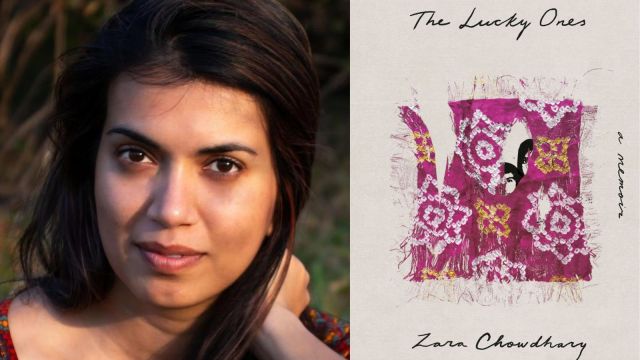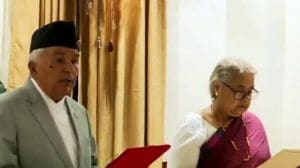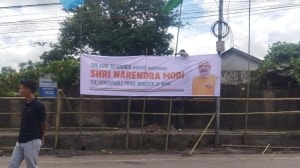Zara Chowdhary wins the final Shakti Bhatt Prize for her memoir The Lucky Ones
First instituted in 2008 to recognize debut authors from the subcontinent, the Shakti Bhatt Prize has, over 17 years, evolved into a broader recognition of literary excellence across genres and geographies in South Asia.
 The book captures the three month siege endured by 16-year-old Chowdhary and her Muslim family and the others in the community in Ahmedabad as violence spread through the city.
The book captures the three month siege endured by 16-year-old Chowdhary and her Muslim family and the others in the community in Ahmedabad as violence spread through the city.The Shakti Bhatt Prize 2025 has been awarded to debut author Zara Chowdhary for her memoir, The Lucky Ones, an account of her survival during the 2002 Gujarat riots. With the award, Chowdhary will also receive a cash prize of Rs 2 lakh.
The book captures the three month siege endured by 16-year-old Chowdhary and her Muslim family and the others in the community in Ahmedabad as violence spread through the city. Her book blends personal history with political memory, exposing not just the trauma caused by the violence but also by the dysfunction within her own house.
Chowdhary’s win also marks the end of an era. The Shakti Bhatt Prize will be discontinued after this year. In a statement, the Shakti Bhatt Foundation acknowledged that the landscape has changed – where literary prizes are now more common and the unique need the prize once served has evolved. Fittingly, the prize ends, as it began in 2008, by awarding a debut author.
The prize was established in 2007, in the memory of Indian publisher Shakti Bhatt. Bhatt who was the editor of the publishing house, Bracket Books, died following an illness in 2007. The Foundation was set up by her husband and poet Jeet Thayil along with family and friends.Originally called the Shakti Bhatt First Book Prize, it honoured debut authors in English or in translation, when it was first awarded in 2008. In the later years it became a prize that honoured a writer’s body of work.
 (Facebook: Shakti Bhatt Foundation)
(Facebook: Shakti Bhatt Foundation)
The Shakti Bhatt Prize recognised and celebrated literature from the South Asian subcontinent, awarding writers from Bangladesh, Pakistan, Sri Lanka, and India. Notable past winners include Mohammed Hanif (A Case of Exploding Mangoes, 2008), Sujatha Gidla (Ants Among Elephants, 2018), and Tony Joseph (Early Indians, 2019).
For 17 years, the prize remained fiercely independent – funded by writers, backed by senior journalists like TJS George, Professor Thomas Kailath and journalist Sheela Bhatt – and free from corporate sponsorship. In closing, it leaves behind a powerful legacy of elevating South Asian voices that challenge, question, and endure.
As the curtain closes on one of the most important literary honours of India, its final act reminds us why stories and the voices behind it still matter.
Photos





- 01
- 02
- 03
- 04
- 05


























